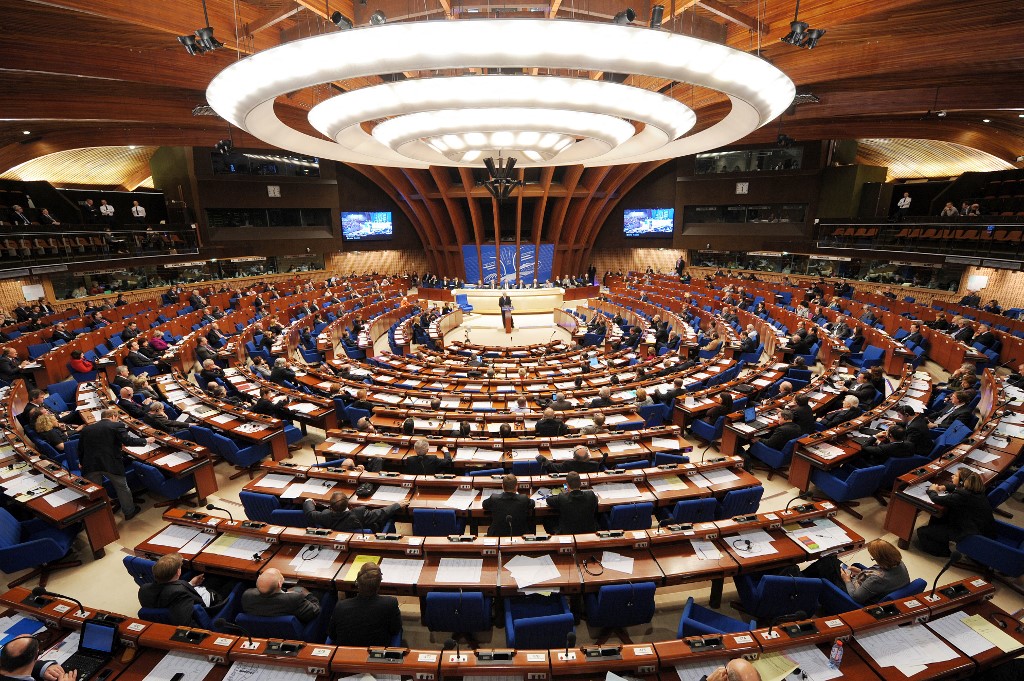The Parliamentary Assembly of the Council of Europe (PACE) in a resolution adopted on Friday condemned all forms of transnational repression – the assassination, intimidation or harassment by a state of its perceived enemies living abroad – as a growing threat to the rule of law and human rights and expressed concern about Turkey’s relentless pursuit of anyone allegedly related to the Gülen movement.
Turkey accuses the faith-based movement, inspired by Turkish cleric Fethullah Gülen, of orchestrating a failed coup in July 2016 and designates it as a “terrorist” organization. The movement denies involvement in the coup or any terrorist activity.
“The Assembly is concerned about the fact that Türkiye has also used some of the tools of transnational repression, particularly following the coup attempt of July 2016 and its consistent policy of pursuing amongst others anyone allegedly related to the ‘Gülen movement’, which is referred to as the ‘Fetullahist Terrorist Organisation (FETÖ)’ by the Turkish authorities,” the resolution said.
According to the resolution, the Turkish government’s tactics rely on “renditions, abuse of extradition proceedings, Interpol Red Notices, anti-terror financing measures, and co-opting other States to deport or transfer persons unlawfully.”
Since the coup attempt in July 2016 the government of Turkish President Recep Tayyip Erdoğan has employed extralegal methods to secure the return of its critics after its official extradition requests were denied.
In a joint letter UN rapporteurs accused the Turkish government of engaging in the systematic practice of state-sponsored extraterritorial abductions and forcible returns to Turkey, with at least 100 Turkish nationals renditioned from multiple states to Turkey.
Most recently Turkey’s National Intelligence Organization (MİT) confirmed in its annual report that it had conducted operations for the forcible return of more than 100 people with alleged links to the Gülen movement.
“… [M]ore than 100 members of the [Gülen movement] from different countries were brought to Turkey as a result of the [agency’s] increased operational capacity abroad,” MİT’s 2022 report said.
Erdoğan has been targeting followers of the Gülen movement since the corruption investigations of December 17-25, 2013, which implicated then-prime minister Erdoğan, his family members and his inner circle.
Dismissing the investigations as a Gülenist coup and conspiracy against his government, Erdoğan designated the movement as a terrorist organization and began to target its members. He intensified the crackdown on the movement following the abortive putsch in 2016 that he accused the Gülen movement of perpetrating.
Former vice president Fuat Oktay earlier this year said in a speech in parliament that Turkish agents had conducted “diplomacy” with their counterparts in countries where Turkish nationals were abducted.
Turkey’s efforts at transnational repression against critics abroad do not seem to be winding down. Most recently, Mehmet Cintosun, who went missing in Erbil, Iraq, on Jan. 29, turned out to be in police custody in Turkey when photos of him were made public by MİT on April 14.
In several of these cases the UN Working Group on Arbitrary Detention (WGAD) concluded that the arrest, detention and forced transfer to Turkey of Turkish nationals were arbitrary and in violation of international human rights norms and standards.
“The Council of Europe and its member and observer States should recognise that transnational repression is a global phenomenon attacking the foundations of democratic societies and the rule of law, and that strengthened and more coordinated action to prevent and fight it is needed,” the resolution said.
PACE has also called on Turkey to end its intimidation of a Turkish journalist living in exile in Sweden.
Turkish journalist Bülent Keneş’s extradition from Sweden is a demand by Ankara to ratify Stockholm’s NATO membership.
Sweden’s Supreme Court in December refused to extradite Keneş, saying some of the accusations against him were not crimes in Sweden, which, along with the political nature of the case and his refugee status, made extradition impossible.
Keneş, the former editor-in-chief of the now-closed English language Today’s Zaman daily, who Turkey accuses of being involved in the 2016 attempt to topple President Erdoğan, was the only person Erdoğan identified by name among the dozens of people Ankara wants extradited in exchange for approving Sweden’s NATO membership.
Erdoğan described Keneş as a “terrorist” during a news conference in Ankara in November.
PACE specifically called on Turkey to “recognize and respect” the Swedish Supreme Court’s decision on Keneş and curtail its policy of “using its veto on NATO membership as a tool of transnational repression.”

